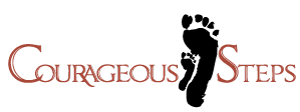DPLS 723: Qualitative Research
Expected Competencies:
Foundations of Qualitative Inquiry: Understanding philosophical traditions, research paradigms, and the epistemological underpinnings of qualitative research in leadership.
Designing and Conducting Interviews: Ability to construct research questions, design conceptual frameworks, and implement semi-structured interview techniques.
Abductive Reasoning and Coding: Competence in employing abductive logic, open and pattern coding, and grounded theory strategies to make sense of qualitative data.
Thematic Analysis and Narrative Integration: Skill in synthesizing interview findings into coherent narrative forms that support broader organizational insights.
Researcher Reflexivity: Awareness of researcher positionality, ethical considerations, and reflexive engagement with the research process.
Achieved Competencies:
Qualitative Methodological Knowledge: Gained a clear understanding of how qualitative research is constructed through grounded theory, narrative inquiry, and abductive analysis.
Interview Practice: Successfully designed, conducted, and transcribed a real-world interview, applying a conceptual framework to guide questioning and thematic interpretation.
Analytical Coding: Developed skills in open and pattern coding using Saldaña’s methods, and drew connections between empirical insights and theoretical constructs using Tavory & Timmermans’ abductive analysis.
Leadership Understanding through Narrative: Deepened insight into the relational and ecosystem-based nature of leadership by analyzing an interview with a regional healthcare strategist.
Reflexive Leadership Research: Reflected on personal identity as a researcher and practitioner, considering how lived experience shapes both research approach and leadership vision.
Applied Competencies:
Abductive Research Paper: Authored a qualitative analysis titled Leadership as an Ecosystem of Trust, which integrated fieldwork, coding, and theory to examine collaborative leadership in the healthcare sector.
Interview with Ryan Cork: Conducted and analyzed a semi-structured interview with a local healthcare leader, surfacing key themes such as trust-building, strategic convening, and community partnerships.
Conceptual Framework Development: Created a visual and written conceptual model that informed both data collection and thematic analysis of the interview process.
Artifact Inclusions:
Abductive Research Paper: Leadership as an Ecosystem of Trust
Interview Transcript and Coding Summary: Interview with Ryan Cork
Assignment Prompt: Interview Project Requirements
References:
Bazeley, P. (2021). Qualitative Data Analysis: Practical Strategies (2nd ed.). SAGE.
Tavory, I., & Timmermans, S. (2014). Abductive Analysis: Theorizing Qualitative Research. University of Chicago Press.
Saldaña, J. (2021). The Coding Manual for Qualitative Researchers (4th ed.). SAGE.
Miles, M. B., Huberman, A. M., & Saldaña, J. (2020). Qualitative Data Analysis: A Methods Sourcebook (4th ed.). SAGE.
Francovich, C. (2024). DPLS 723 Course Syllabus. Gonzaga University.
Keywords:
Qualitative inquiry, interview design, abductive reasoning, thematic analysis, community leadership, researcher reflexivity, coding strategies, healthcare ecosystem, narrative leadership, grounded theory

